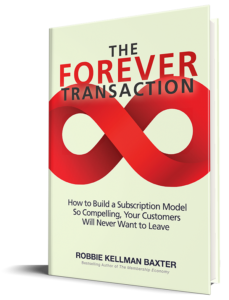Yesterday, my Op-Ed piece on Netflix's recent price hike was picked up by the San Francisco Chronicle.
The copy is below, or you can click to link.
Netflix, the popular movie rental service, announced last week that it will be unbundling its DVD business from its newer movie-streaming business, resulting in a 60 percent price increase for customers who wish to continue to receive DVDs in the mail in addition to the streaming content. Netflix made three mistakes:
A 60 percent price increase is hard to swallow: This is especially true for a subscription-based business, which needs to avoid making customers rethink their original commitment to the monthly fee. The beauty of recurring revenue models is the implicit trust between customer and company, which is lost when the customer feels as if he needs to re-evaluate the value he gets for his money. Netflix's strategy of ripping off the Band-Aid may have been the wrong approach.
The streaming model that Netflix wants customers to adopt is not ready for prime time: It offers only a fraction of the Netflix content that is available on DVDs. Even people who want to move to streaming are holding back until there is a significant library of movies to watch.
Netflix positioned this change as a benefit: If you want to receive only the DVD service, $7.99 is indeed a reduced price. However, for most subscribers, the new pricing means paying much more for the same level of service. Once a company gives something away, it is difficult to charge for it. Netflix has effectively been giving away streaming, and now it wants payment. Customers feel misled in addition to overcharged.
If Netflix had been more transparent about its new direction, it might have said, "We are focusing on our streaming business and moving away from our DVD business. We have been subsidizing both streaming and DVD rentals for a while, as we transitioned from one model to the next, but it no longer makes sense. We recognize that some of our customers are not ready to move to streaming, so we will keep DVDs available. However, we will raise the prices, even dramatically, so it makes financial sense for us. If some DVD-oriented customers don't want to pay for it, that's OK; they probably weren't profitable customers for us anyway."
I love Netflix and have been a subscriber since the beginning. However, Netflix's overly positive positioning, combined with such a jarring price increase, is causing much greater backlash than Netflix expected. Netflix was able to beat Blockbuster in the early days by promising simple pricing.
If Netflix can bring its movie-streaming service to parity with its DVD library, and can keep the pricing simple, it can win back its passionate customers. In the meantime, it might want to consider limiting its new pricing to new customers. It can always raise prices when it has new value to share.
More broadly, Netflix's experience can be seen as a learning opportunity for anyone who has to deliver bad news. Honesty is key, and sometimes it's not best to just rip off the Band-Aid.
This article appeared on page A – 8 of the San Francisco Chronicle


